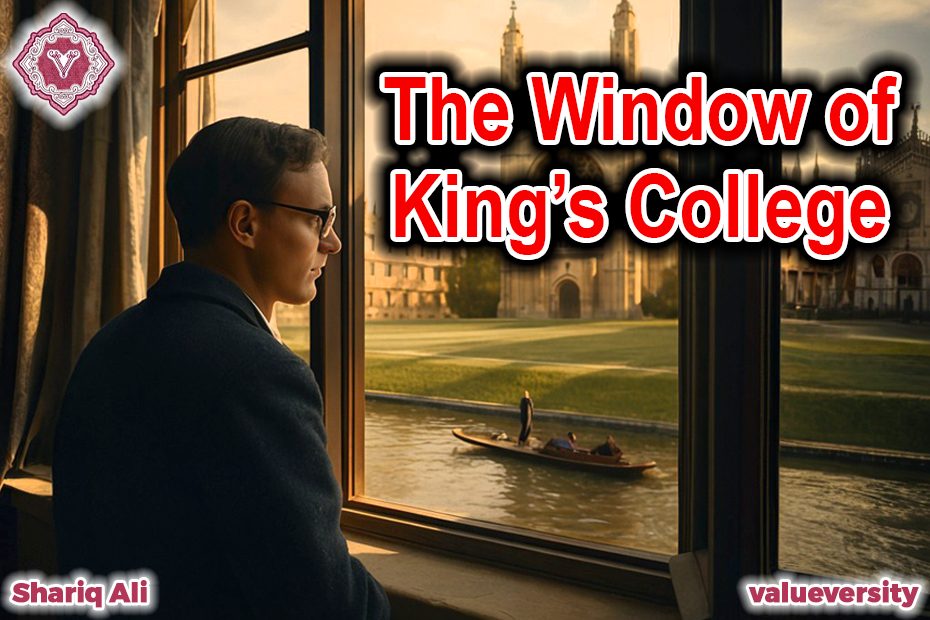The Window of King’s College
Written by: Shariq Ali
Valueversity
It was many years ago when I first saw Cambridge. I stayed for a week in the hostel of King’s College. This was during my plastic surgery training, and I had come to Cambridge to attend a week-long residential course on advanced plastic surgery.
The storytelling stone-paved streets, the majestic and historic buildings of various colleges standing at close distances, the King’s College Cathedral and its lawns, the intellectual bustle of the city center, the contemplative silence of the inner lanes, the slow walks along the River Cam lost in deep thought, and the friendly erudition of the Fitzwilliam Museum—all of it felt immensely impressive. Soon, I developed a deep friendship with the city.
In the afternoons, after the morning lectures ended, I would sit by the window of my hostel room and have lunch. Outside, I could see the River Cam, the punting boats gliding through it, and in the background, the meadow known as “The Backs.” Tourists passing by, groups of students laughing and chatting—the scene felt like a dream. In these moments, I often thought of many great minds: Isaac Newton, C.S. Lewis, Abdus Salam, and Alan Turing.
This is the very college where Alan Turing studied.
I would often wonder—did Turing once walk down these very streets? That quiet, withdrawn boy who was different from the rest, yet unmatched in intelligence. Perhaps it was while looking out this very window that he conceived the idea of the “Universal Machine”—a machine that could solve any problem, if given the correct instructions. Today, we call it a computer. Perhaps these very views planted the seeds of that great revolution.
During the Second World War, Turing left the calm streets of Cambridge and moved to Bletchley Park near London, where he invented a machine to break the Nazis’ secret code “Enigma”—a machine that resembled the early computer. According to experts, Turing’s efforts helped end the war nearly two years early and saved millions of lives. But the world at large only came to understand the value of his sacrifice and genius much later.
Although he was a national hero, in 1952 he was convicted solely for being homosexual—a criminal offense in Britain at the time. Instead of lying, he chose to speak the truth and accepted his punishment. He was given the choice between imprisonment or chemical castration, and he chose the latter. The punishment proved to be agonizing for both his body and soul. Two years later, at just forty-one, Alan Turing passed away.
Years later, Britain realized its grave mistake. In 2009, the British government issued an official apology. In 2013, he was granted a royal pardon. And in 2021, his portrait appeared on the £50 note.
Turing, considered the father of computer science, proposed in 1950 that if a machine could think like a human and deceive a person in conversation, it should be considered “intelligent.” This idea later became known as the “Turing Test,” one of the foundational concepts of Artificial Intelligence.
Perhaps the small window of that King’s College hostel room opened to a sorrowful moment in time and history. Today, I live permanently near Cambridge and often visit the city. Along with many other memories, this melancholic tale occasionally holds my hand.
Alan Turing’s story is not just about the invention of the computer, the birth of artificial intelligence, or the triumph of World War II—it is the story of a man who quietly changed the world. A visionary who could see the future, yet whose personal choices were cruelly punished by the world.
Whenever you use your mobile phone or an AI tool answers your question, remember: it is the fruit of someone’s intellectual struggle, isolation, and a dream come true. A shy, quiet young man—who saw the future through the window of King’s College.
